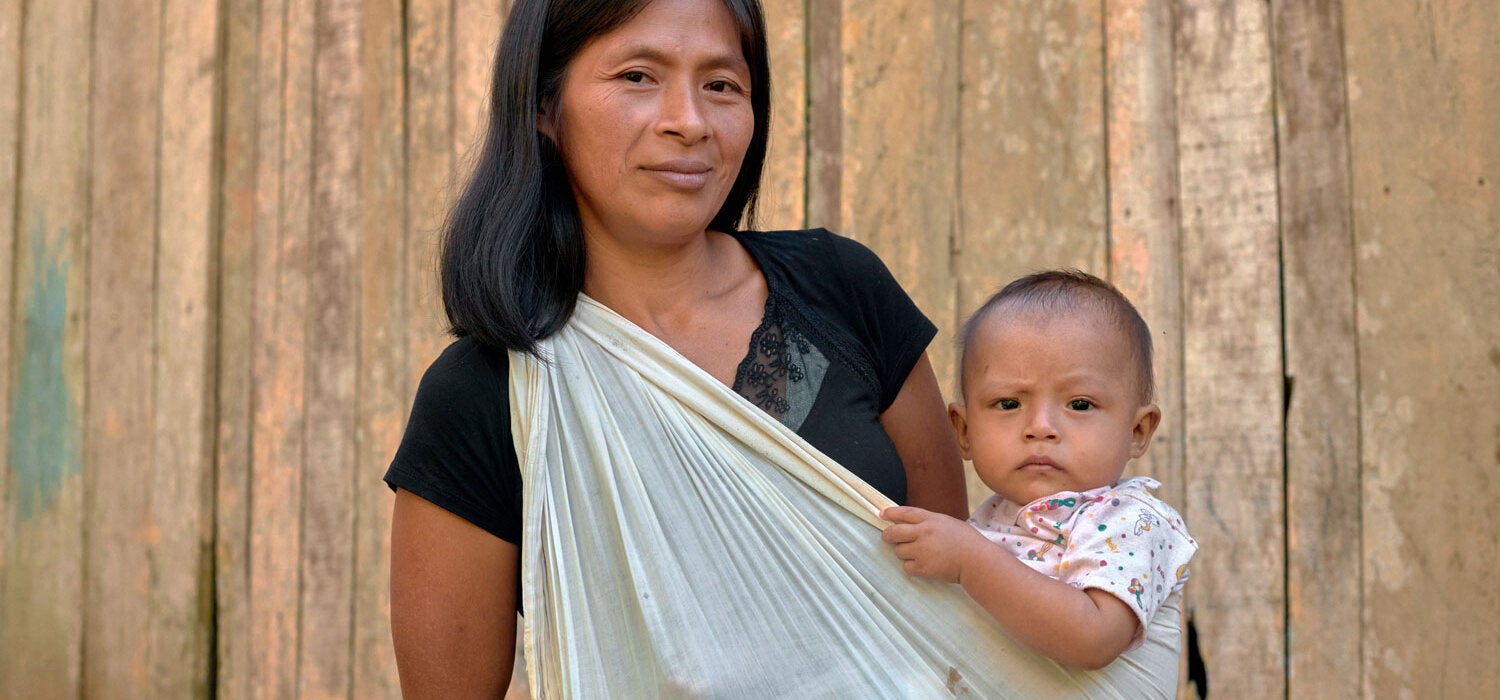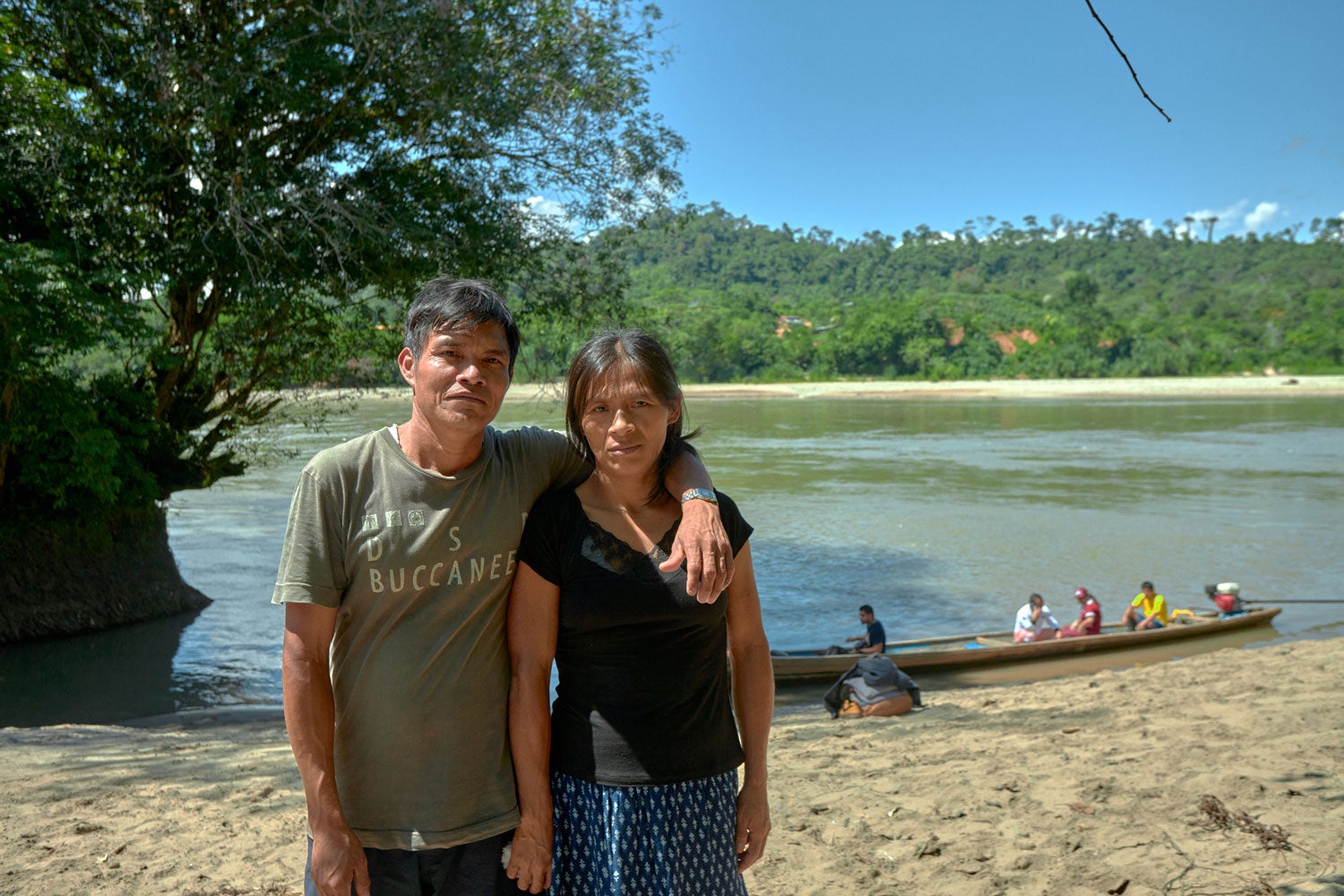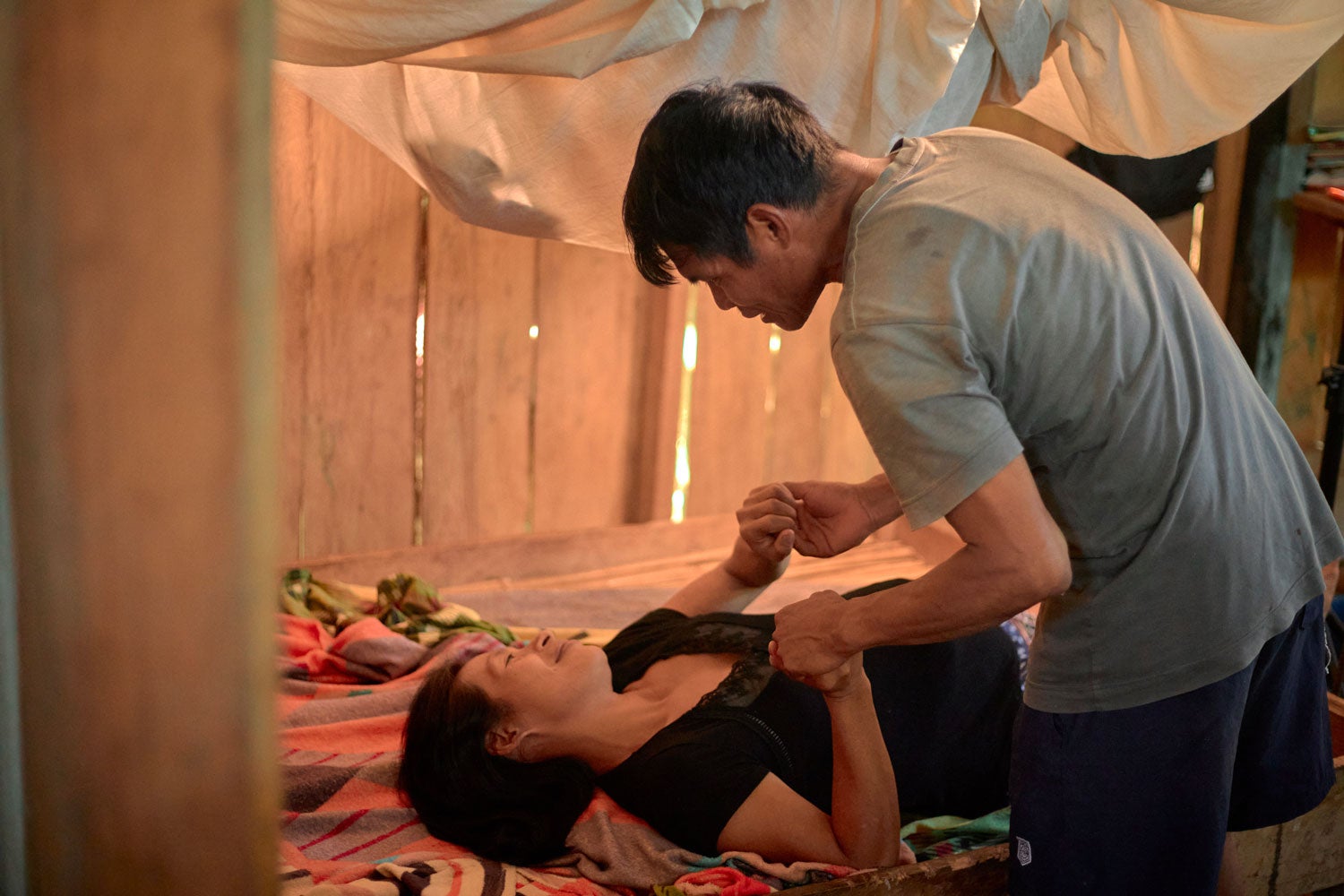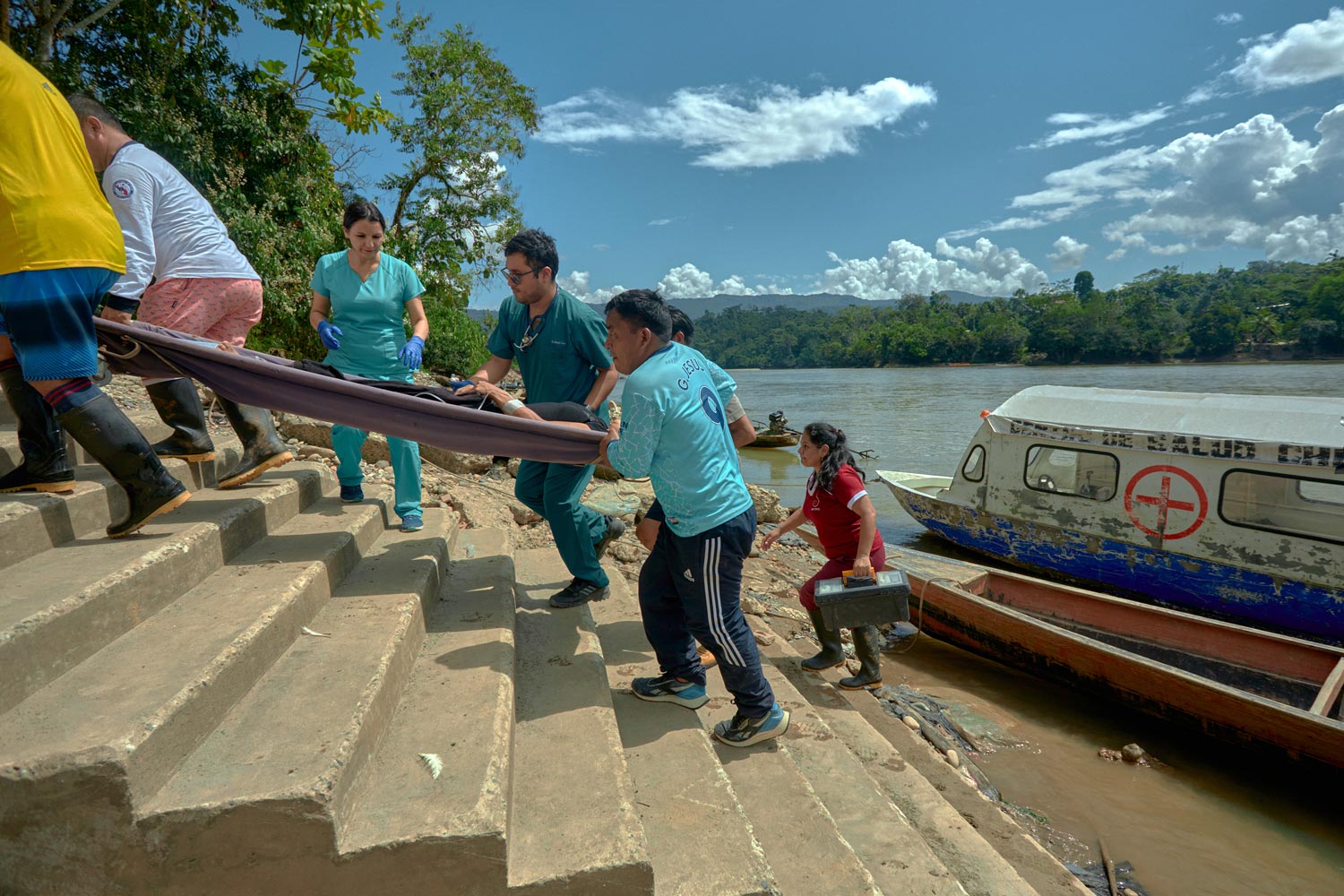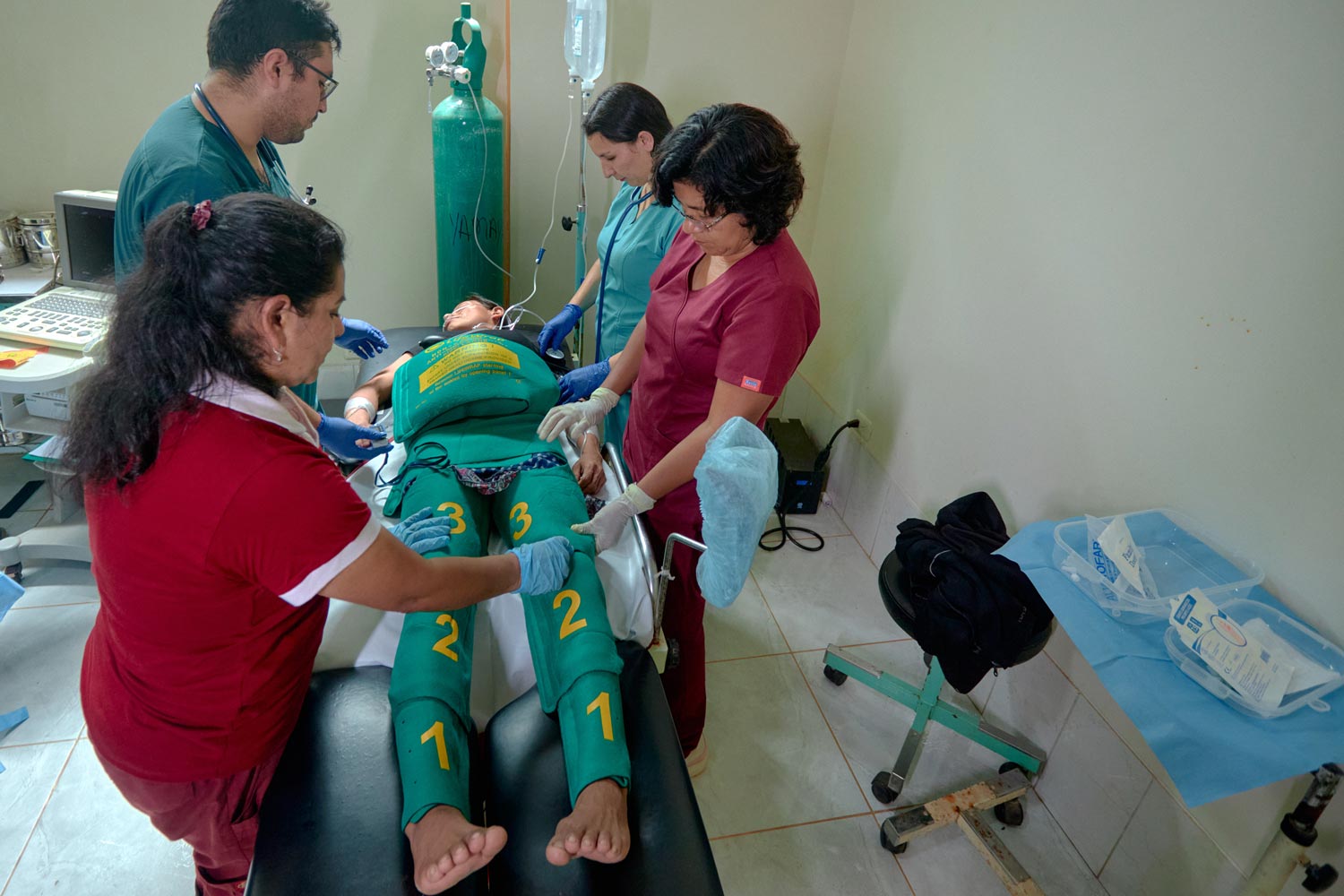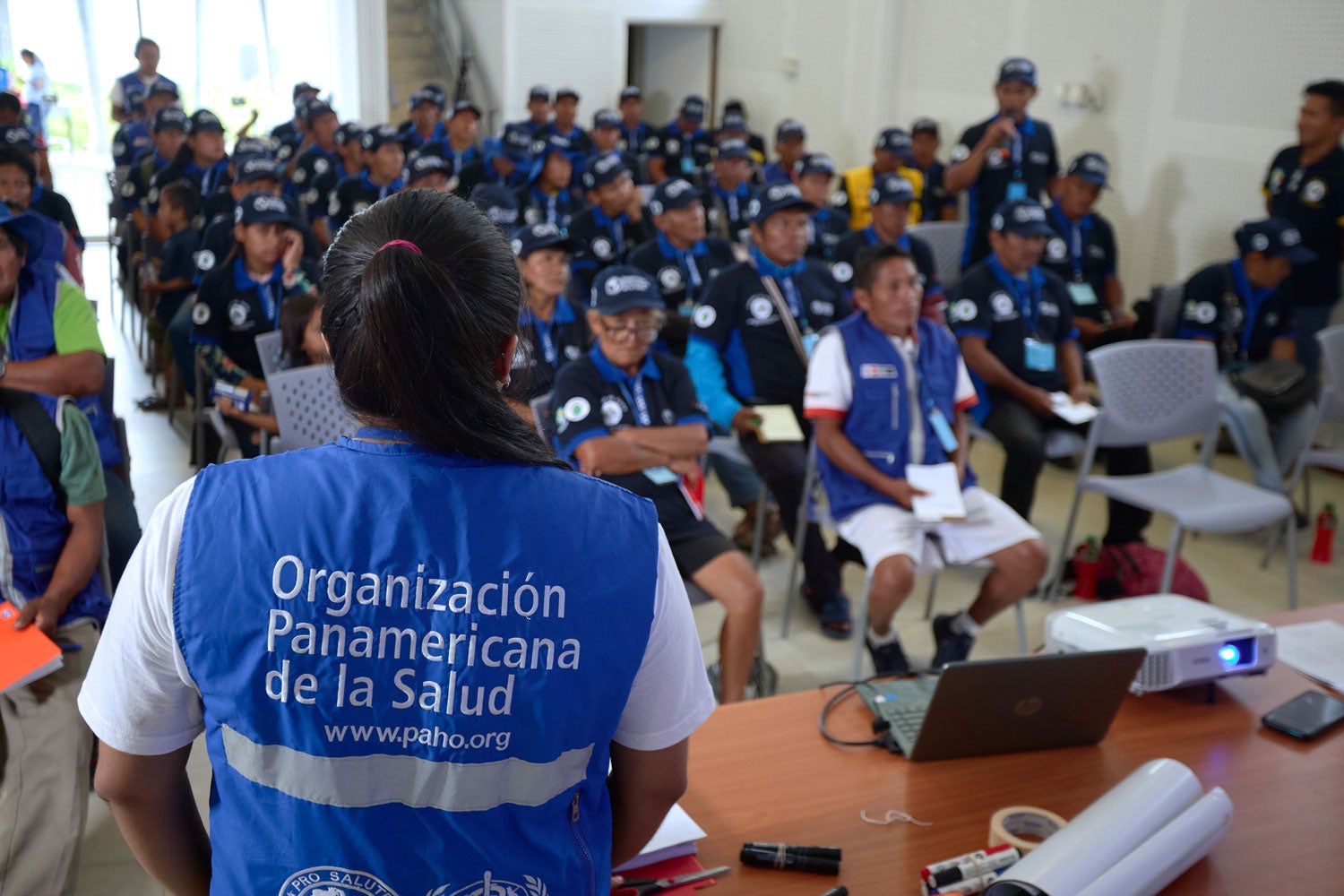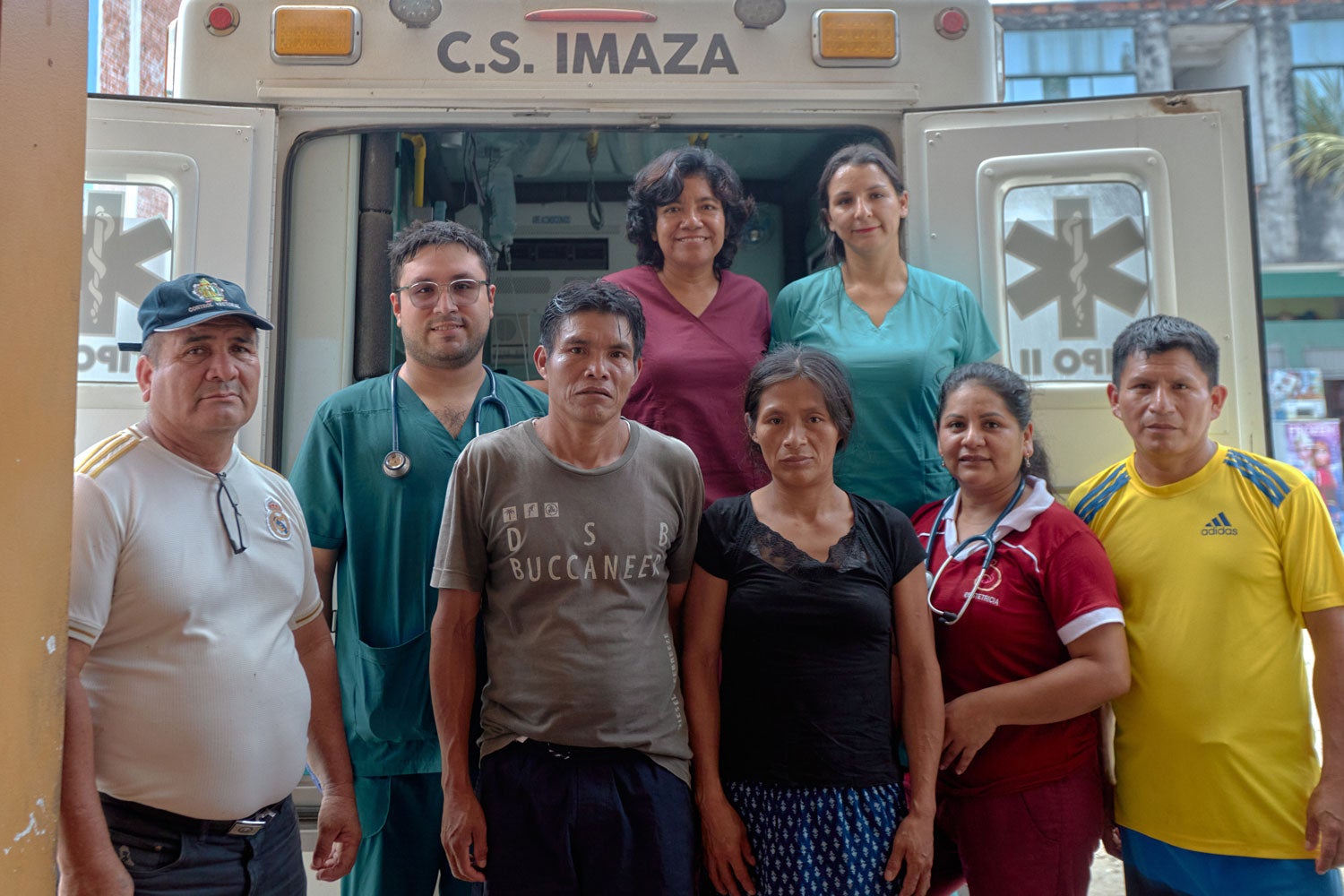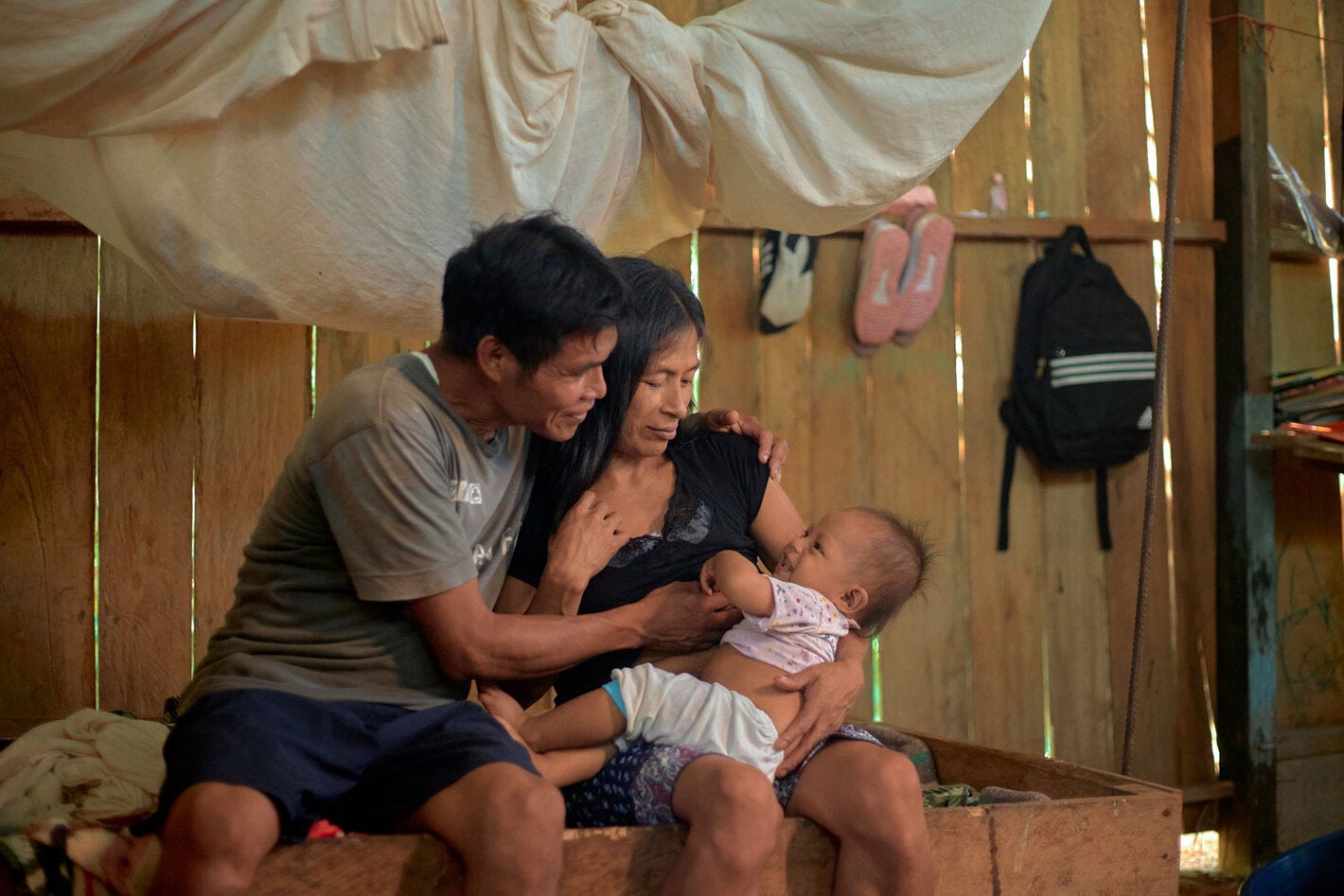The interventions from Leoncio and the healthcare professionals, who had been trained as part of the technical cooperation with PAHO, was crucial to address this obstetric emergency. According to Dr. Ivy Lorena Talavera, PAHO Advisor for Family, Health Promotion and Life Course in Peru, this type of emergency occurs in several countries in the Americas, where health challenges are very similar. PAHO therefore works to strengthen the competencies and capacities of local healthcare personnel who directly serve such populations – especially those that live in remote conditions and have difficult access to health services. This includes the implementation of modern medical tools such as the antishock garment that helped save Aída’s life, as well as spaces to empower community agents, local leaders, and decision-makers, supporting their culturally embedded knowledge on the subject.
This information transfer is not only useful during the delivery of a child, but also serves to raise awareness about possible risk conditions in pregnant women, and to notify professionals for timely actions that can saves lives. “It is essential to raise awareness about the importance of all stages of pregnancy: from effective prenatal care within the first twelve weeks to recognizing signs that may indicate a risk to the pregnant woman and ensuring a safe delivery,” explains Talavera, who also leads the implementation of the project Improved Health of Women and Adolescent Girls in Situations of Vulnerability in Peru, which is supported by the Government of Canada and is implemented in six countries in the region.

